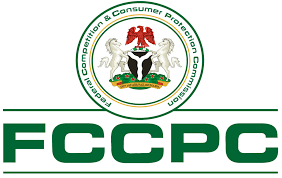The Federal Competition and Consumer Protection Commission (FCCPC) appreciates the feedback provided by the Organised Private Sector and other interested parties regarding recent directive to businesses to cease price gouging, price fixing, and other exploitative practices.
“We value this dialogue and wish to clarify our position. Price gouging is an unfair practice that takes advantage of crises or economic hardships to inflate prices arbitrarily, while price fixing occurs when competitors or market associations, without their own products, collude to set prices.”
According to a press release by the Director, Special Duties & Strategic Communication, Ondaje Ijagwu “At the FCCPC, our mandate is to safeguard consumers from unfair and deceptive practices and to ensure robust competition across all sectors. We categorically assert that prices in a competitive marketplace are determined solely by the forces of supply and demand. Price control is entirely outside the scope of our responsibilities. We have never considered, nor will we ever consider, intervening in the market to regulate prices. Any claims to the contrary are baseless and unfounded. Our recent directives are not about controlling prices but are focused on curbing exploitative practices and anti-competitive behaviours that distort the marketplace and harm consumers.”
“We recognise the complexities of the current economic environment, including challenges such as foreign exchange fluctuations and fuel subsidy removal. These factors certainly impact pricing, but they do not excuse or justify exploitative practices that are anti-consumer. The Commission’s proposed actions in the retail sector are targeted and evidence-based, responding to specific instances where consumers are vulnerable to such exploitation.
“Discoveries made during our market surveillance and a recent disclosure by Abdul Samad Rabiu, Chairman of BUA Cement, underscore the critical need for our oversight. Mr. Rabiu revealed that despite BUA Cement’s effort to sell cement at a fair price of N3,500 per bag, their plan was undermined by dealers who inflated prices to as much as N7,000 to N8,000 per bag. This situation exemplifies the kind of exploitative conduct that the FCCPC is committed to addressing. Such practices make it difficult for ethical businesses to thrive.
“While promoting competition is essential for economic health, as evidenced in sectors like telecommunications, it is equally important to enforce laws against practices that undermine fair competition. The FCCPC remains committed to a balanced approach that respects the dynamics of a free market while ensuring that consumers are protected from harmful practices.
“We encourage all businesses to engage in ethical and lawful practices that contribute to a fair and competitive marketplace. The FCCPC does not seek to suppress private enterprise; our role is to ensure that the market operates on principles of fairness, transparency, and accountability. When businesses, as illustrated by the cement sector case, engage in practices that harm consumers, the FCCPC will take decisive action.
“The FCCPC stands firm in its commitment to enforcing the Federal Competition and Consumer Protection Act (FCCPA) 2018. We will continue to monitor the marketplace and take action against any business practices that violate the law. Consumers and businesses alike can trust that we will remain vigilant in upholding the principles of fair competition and consumer protection.”


















